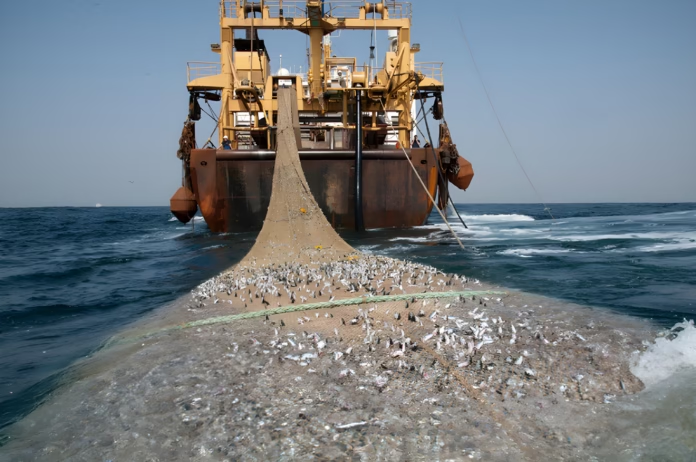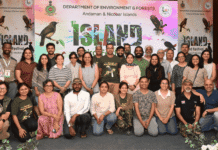Sri Vijaya Puram, April 11: In a bid to conserve marine biodiversity and ensure sustainable fishing practices, the Andaman and Nicobar Administration has announced a mandatory seasonal ban on bottom trawling and shark fishing in the island waters, effective from April 15 to May 31, 2025. The decision, as per the Andaman and Nicobar Islands Marine Fishing Rules, 2004 (Amendment-2019), comes into effect annually during this period to safeguard breeding cycles and preserve marine ecosystems.
According to an official communiqué, fishing vessels operating bottom trawling gear and those engaged in shark fishing will not be allowed to operate during the 47-day closed season, which includes the start and end dates. The closure applies to all designated fishing zones falling within A&N territorial waters.
Fishermen and stakeholders in the region’s marine economy have been explicitly advised to strictly adhere to the ban, which is implemented each year in coordination with conservation protocols and central fisheries guidelines. Authorities have cautioned that any violations of the closed season could attract penalties under the prevailing marine fishing regulations.
Bottom trawling- a technique involving dragging heavy nets along the sea floor- is known to cause substantial disruption to benthic ecosystems and poses a threat to non-target marine species. Likewise, unregulated shark fishing has raised ecological concerns globally, as many shark species face population decline due to overfishing.
The seasonal fishing ban is aimed at facilitating the natural breeding of key commercial fish and shark species, ensuring long-term sustainability of marine resources, and maintaining ecological balance in the highly sensitive maritime ecosystem surrounding the archipelago.
The Department of Fisheries, along with the Coast Guard and other maritime surveillance agencies, is expected to monitor compliance across the islands during the period. The authorities may conduct random inspections, surveillance patrols, and port checks to deter unauthorized fishing activity.
Local fishermen’s associations, while generally supportive of conservation efforts, have previously sought government support in the form of livelihood compensation or alternate work opportunities during the closed season. It remains to be seen whether such measures will be announced this year to offset the impact on small-scale and artisanal fishers.
The Andaman and Nicobar Islands are home to a wide variety of marine species and are part of India’s broader maritime ecological network. The annual fishing closure is part of India’s alignment with marine conservation protocols observed in other coastal regions, including on the mainland.
As the April 15 deadline approaches, all registered fishing vessels and crew are expected to return to shore and halt operations involving the prohibited gear types. The ban will lift on June 1, when fishing activity can legally resume under regulated conditions.





